What do our alumni say about their experiences at SoMAS?
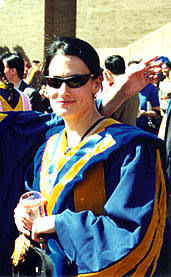
“I highly recommend Stony Brook and the Marine Sciences Research Center to prospective
students. The faculty here are not only first-rate researchers; they sincerely care
about seeing graduate students achieve their career goals in science. Students come
to the SoMAS from a variety of backgrounds and with a broad range of interests. This
diversity is on of the SoMAS’s greatest strengths. Students can pursue their interests
in all areas of oceanographic research, and have the opportunity to participate in
and design projects in locations ranging from the Long Island Sound to the Atlantic
Ocean. Living near the water is an added plus. While some students rely on the sound
as a study site, others are happy to go kayaking, swimming, sailing, and fishing there
when they are not in the lab.”
Anitra Ingalls, Ph.D. 2002
Assistant Professor, University of Washington
"My marine remote sensing research progress, starting at SoMAS, attests to our ability
to meet the challenges of marine science’s new frontier and to SoMAS's commitment
to educating a new generation of marine scientists.”
Xiao-Hai Yan, Ph.D. 1989
Professor of Oceanography, Co-Director of Center for Remote Sensing
University of Delaware Graduate College of Marine Studies
“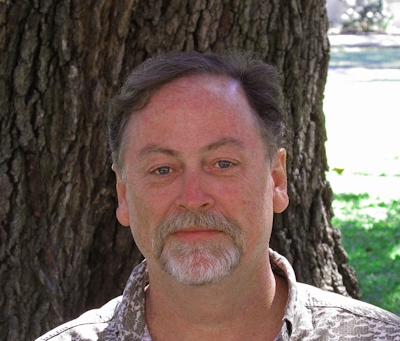 SoMAS is at the vanguard of a new public awareness of the importance and fragility
of the coastal zone. I cannot imagine a more exciting opportunity for prospective
students seeking to make a meaningful contribution to important issues, while at the
same time receiving a high quality education.”
SoMAS is at the vanguard of a new public awareness of the importance and fragility
of the coastal zone. I cannot imagine a more exciting opportunity for prospective
students seeking to make a meaningful contribution to important issues, while at the
same time receiving a high quality education.”
Mead Allison, Ph.D. 1993
Associate Professor
Tulane University
“SoMAS offers a rare opportunity to interact with students and faculty from all over
the world, in many disciplines, and of all ages. This diversity is a form of learning
experience that no oceanography textbook can ever give.”
Shino Tanikawa Oglesby, M.S. 1997
Executive Director at NYC Soil & Water Conservation District
“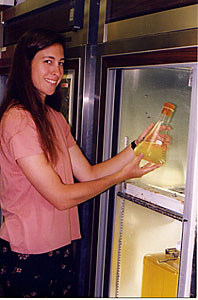 I was very happy with my decision to come to SoMAS at Stony Brook for my Ph.D., and
I would highly recommend SoMAS to future students. One of the biggest assets of the
department is its open and friendly atmosphere. Not only is it relatively easy to
collaborate with other laboratories on site, but the majority of students socialize
together creating a warm, welcoming environment, which is so important considering
how much time one spends on campus and interacting with colleagues. Students who decide
to attend SoMAS are rewarded with a wonderful opportunity to develop their own research
interests with excellent faculty, and, when one has spare time, students can easily
drive or take the train into New York City or hang out at the many nearby beaches.”
I was very happy with my decision to come to SoMAS at Stony Brook for my Ph.D., and
I would highly recommend SoMAS to future students. One of the biggest assets of the
department is its open and friendly atmosphere. Not only is it relatively easy to
collaborate with other laboratories on site, but the majority of students socialize
together creating a warm, welcoming environment, which is so important considering
how much time one spends on campus and interacting with colleagues. Students who decide
to attend SoMAS are rewarded with a wonderful opportunity to develop their own research
interests with excellent faculty, and, when one has spare time, students can easily
drive or take the train into New York City or hang out at the many nearby beaches.”
Dianne Greenfield. Ph.D. 2002
Research Assistant Professor, University of South Carolina & South Carolina Department
of Natural Resources
“The interdisciplinary emphasis of the marine science program at Stony Brook has been
one of its great strengths and prepared me well for my current position as an associate
professor of environmental science at Rutgers University. In my research, I have recently
been occupied tracking down mercury in some of our urban coastal waters, which as
this photo of the New Jersey Meadowlands attests, should not be thought of as beyond
repair. I am often struck by the importance of the experiences I had at SoMAS that
were not directly related to my graduate research.
Through these experiences, I learned something about benthic ecology, organic geochemistry,
and how to host a “distinguished visiting scholar,” all of which has been extremely
useful as a teacher and a professional scientist. I have great memories of the positive
work and social environment among the students and faculty at SoMAS, which recent
visits back to Long Island tell me still exists.”
John Reinfelder, Ph.D. 1993
Associate Professor, Department of Environmental Sciences, Rutgers University
“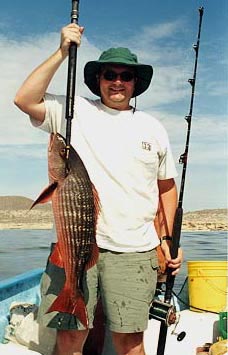 When I came to the MSRC to study the population biology of fishes, I was impressed
by the breadth of topics addressed by the faculty. However, I couldn’t predict how
valuable this diversity of interests would become to me. During the course of my research
on the winter ecology of striped bass, I have frequently called upon the expertise
of geologists, benthic ecologists, and physical oceanographers in planning experiments
and interpreting findings. In addition I have had the opportunity to participate in
a variety of estuarine research projects outside my own work. Through this cooperation,
I have gained a much better understanding of my study organism, and the estuarine
environment in which it lives. Working among such a diverse group of scientists has
been an incredibly challenging experience, and one which has been invaluable to my
professional development.”
When I came to the MSRC to study the population biology of fishes, I was impressed
by the breadth of topics addressed by the faculty. However, I couldn’t predict how
valuable this diversity of interests would become to me. During the course of my research
on the winter ecology of striped bass, I have frequently called upon the expertise
of geologists, benthic ecologists, and physical oceanographers in planning experiments
and interpreting findings. In addition I have had the opportunity to participate in
a variety of estuarine research projects outside my own work. Through this cooperation,
I have gained a much better understanding of my study organism, and the estuarine
environment in which it lives. Working among such a diverse group of scientists has
been an incredibly challenging experience, and one which has been invaluable to my
professional development.”
Tom Hurst. Ph.D. 2000
Research Scientist, National Marine Fisheries Service
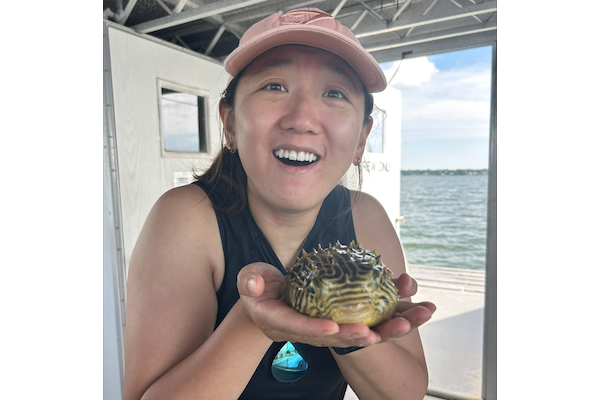
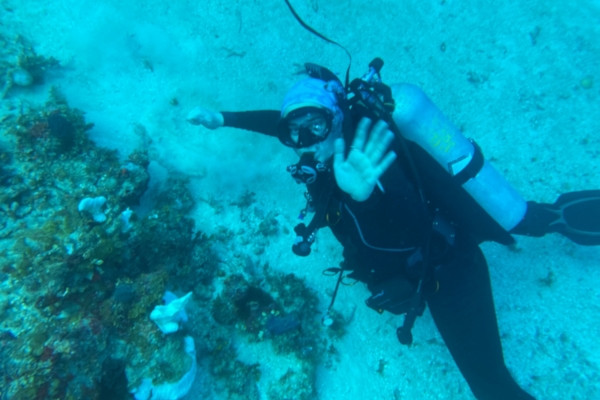
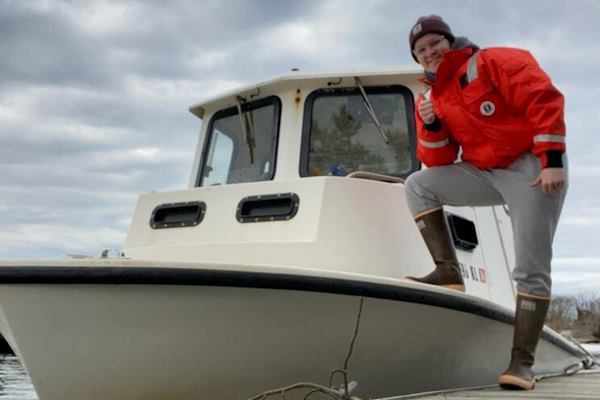
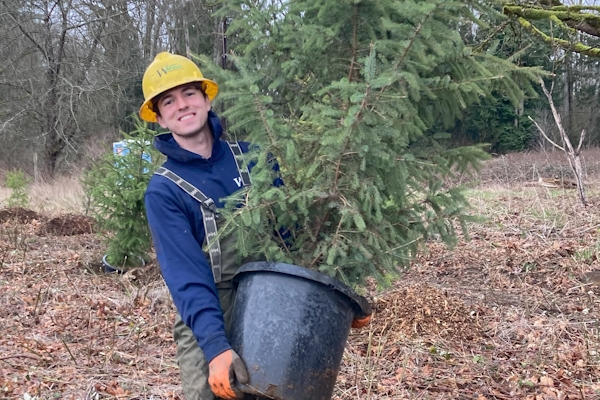
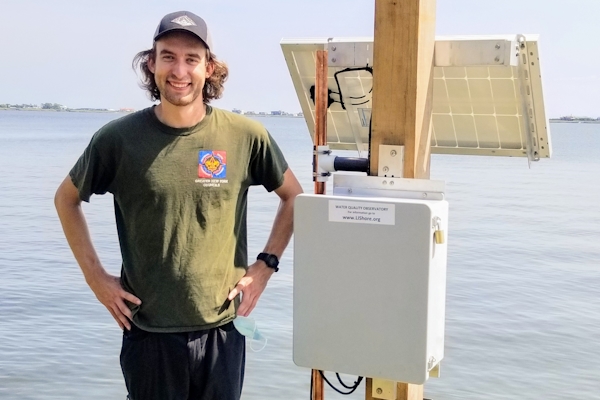
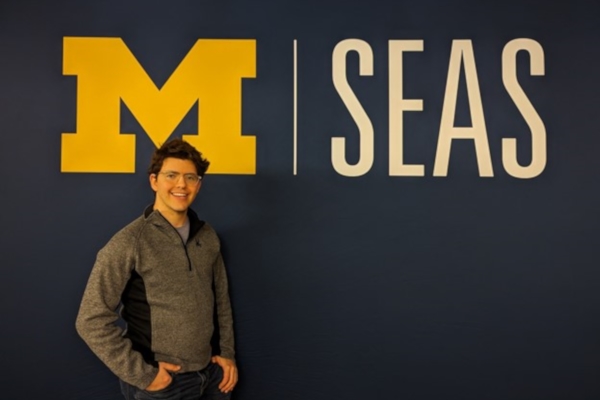
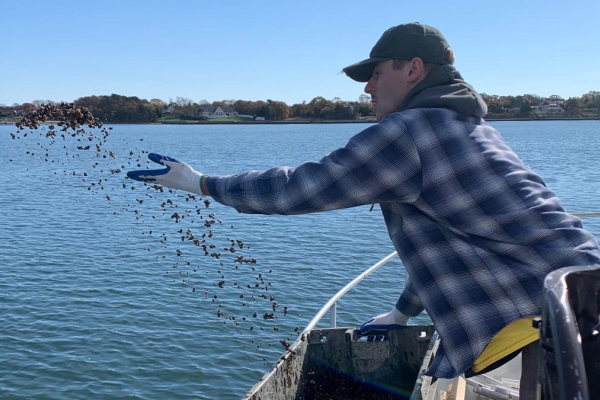
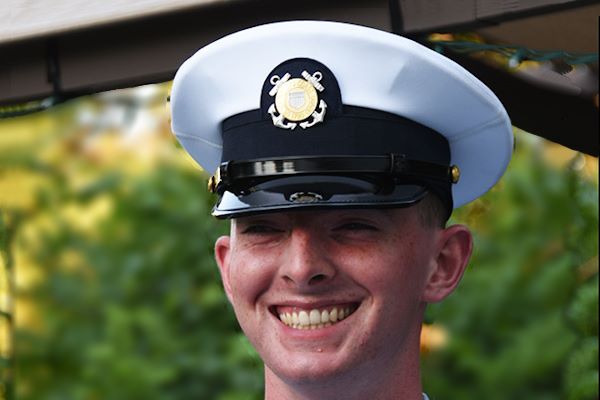
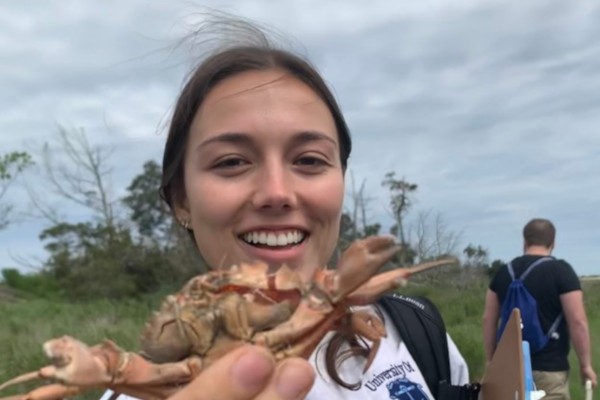
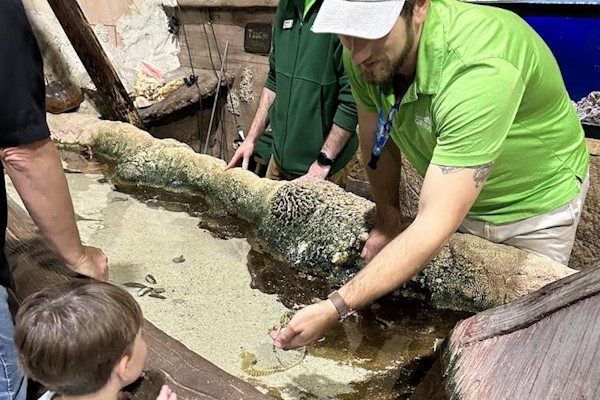
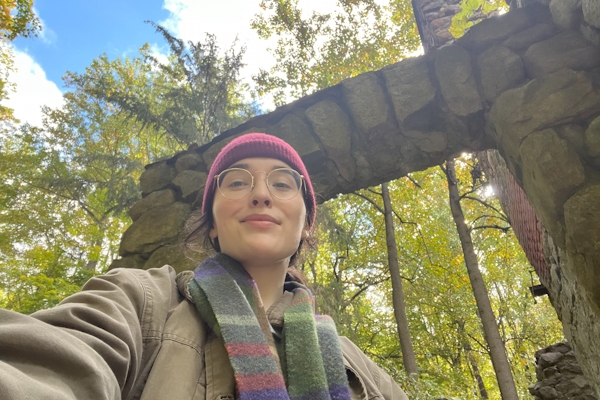
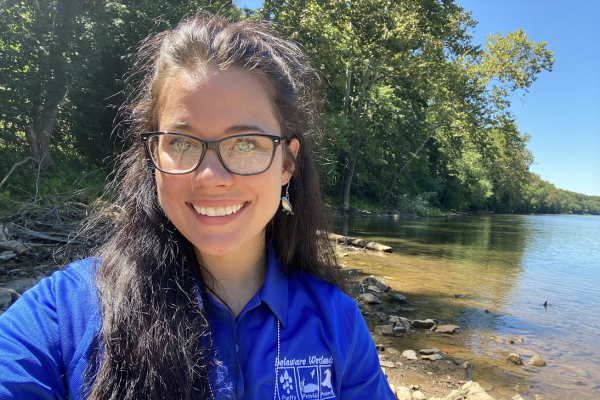
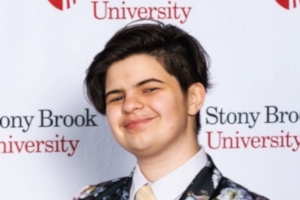
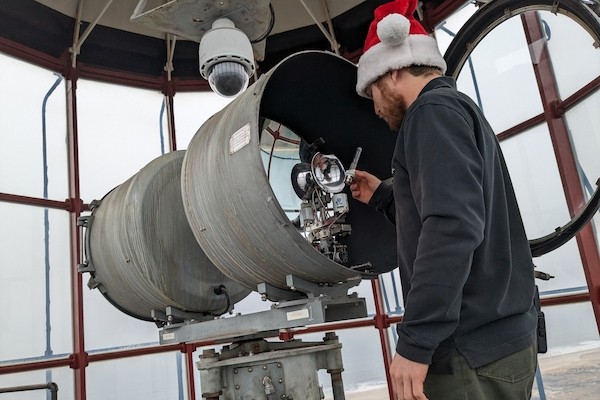
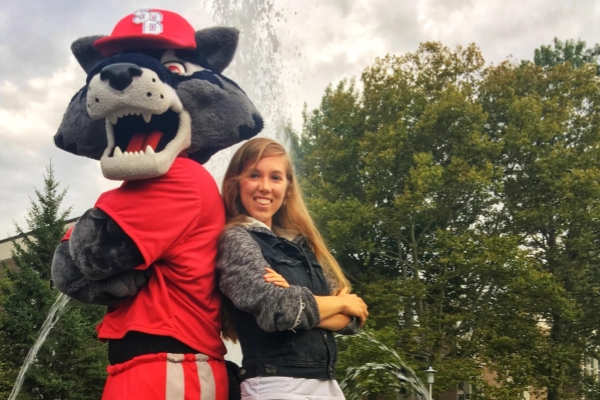
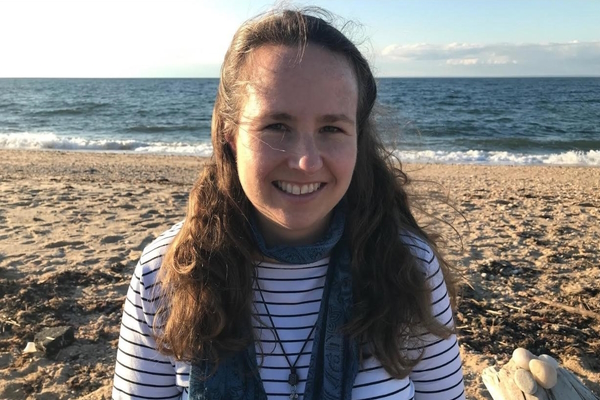
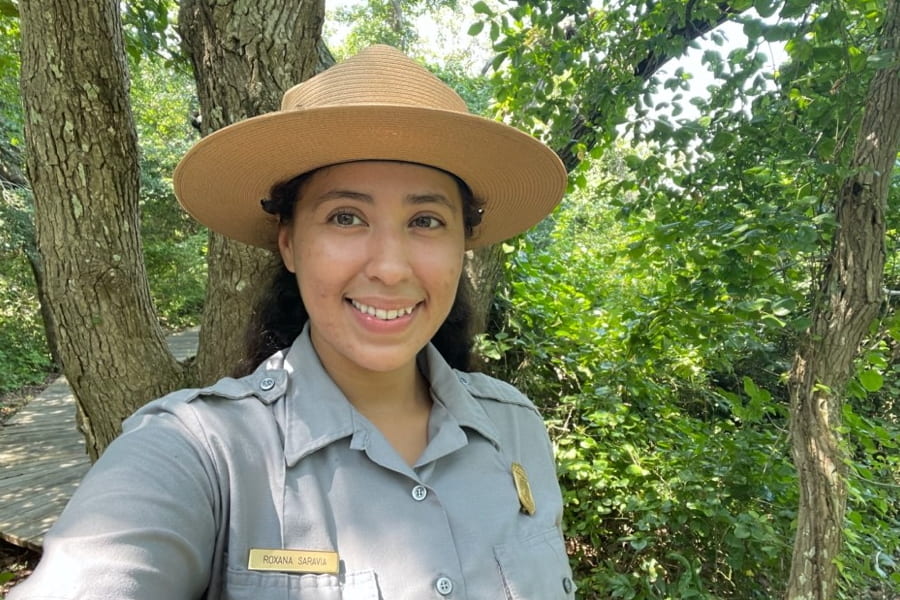
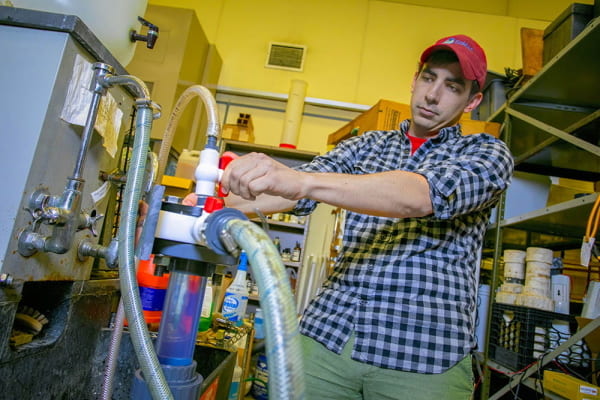
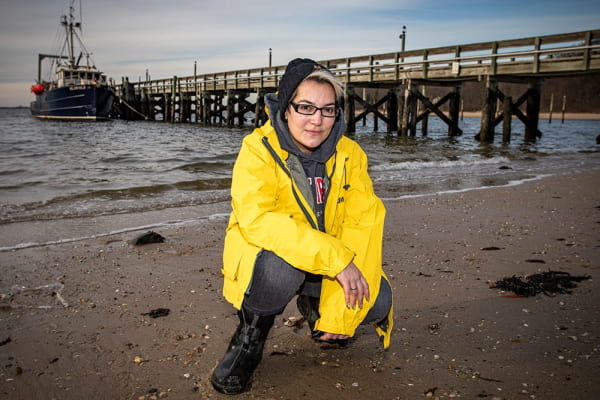
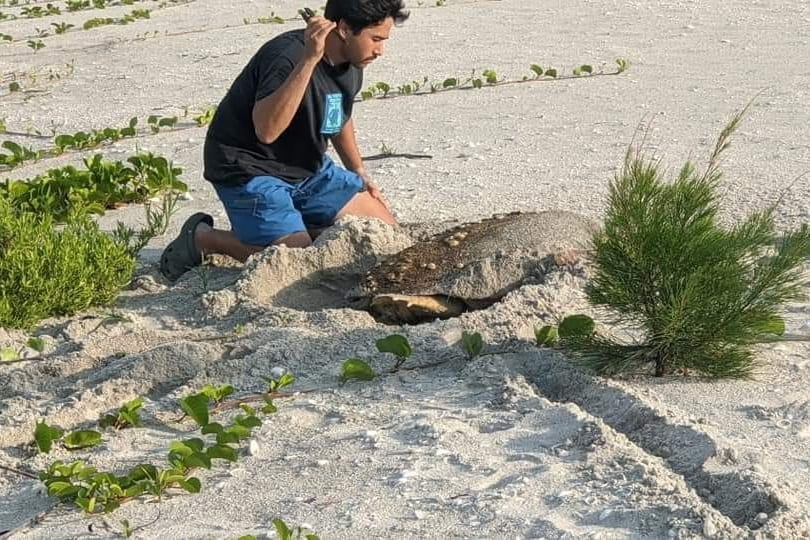
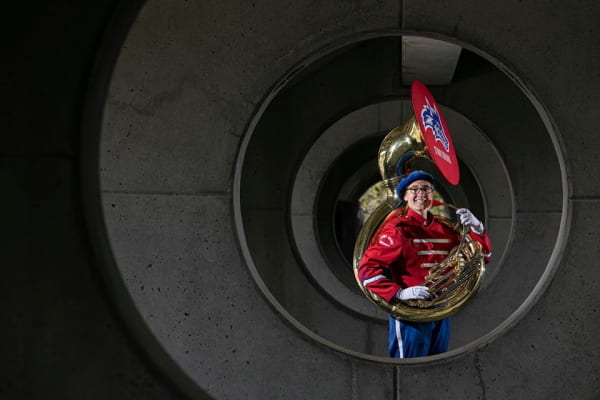
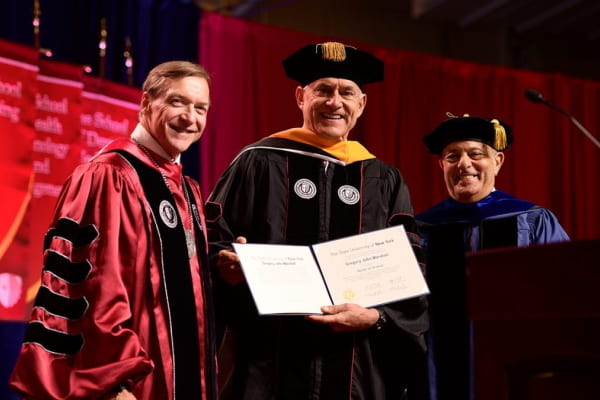
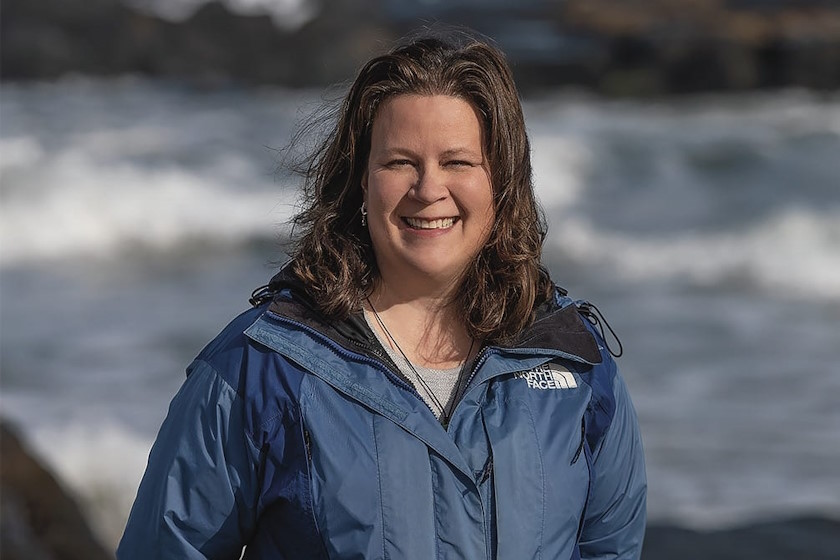
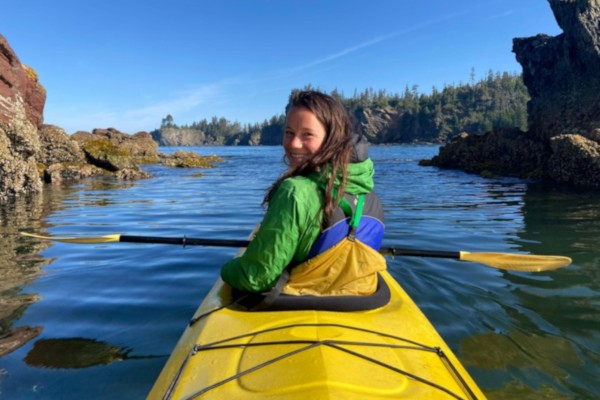
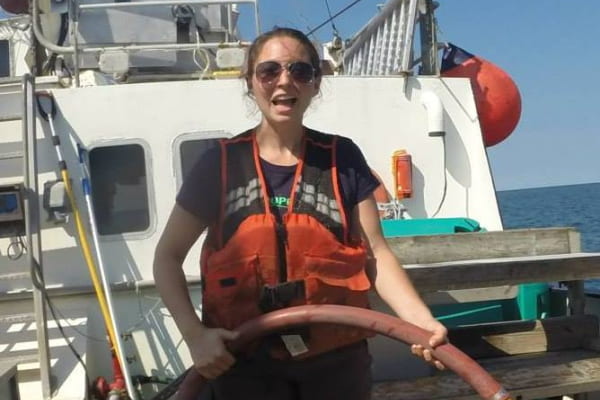
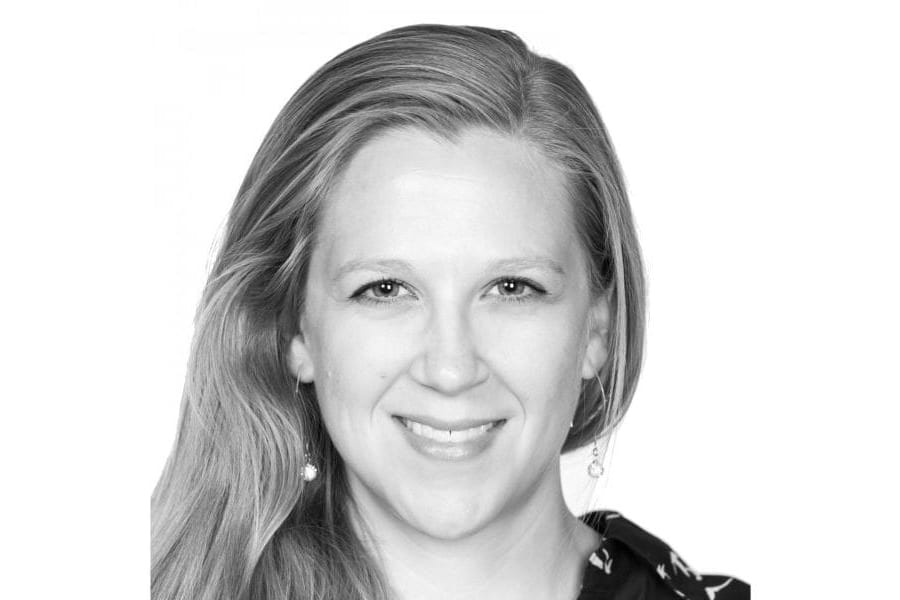
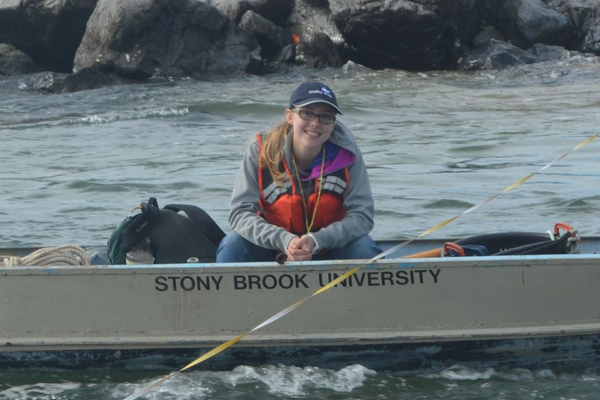
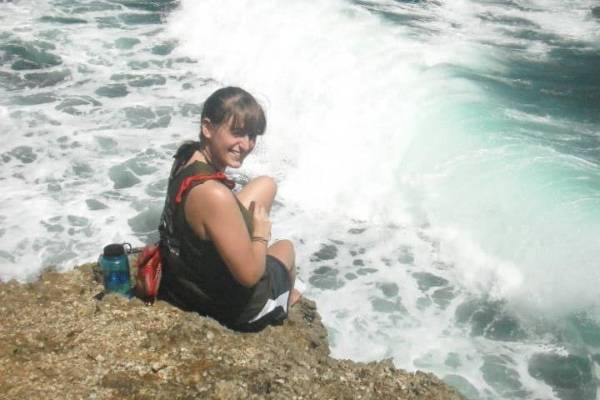
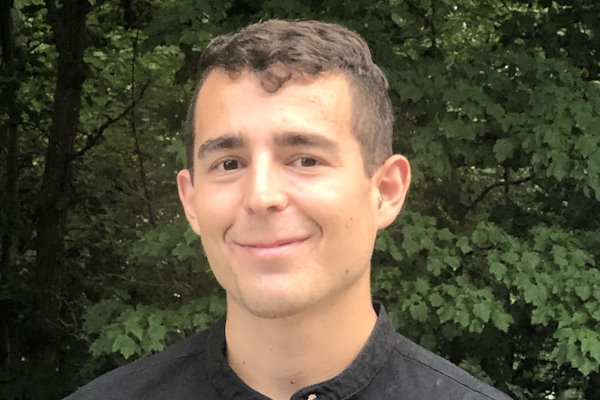

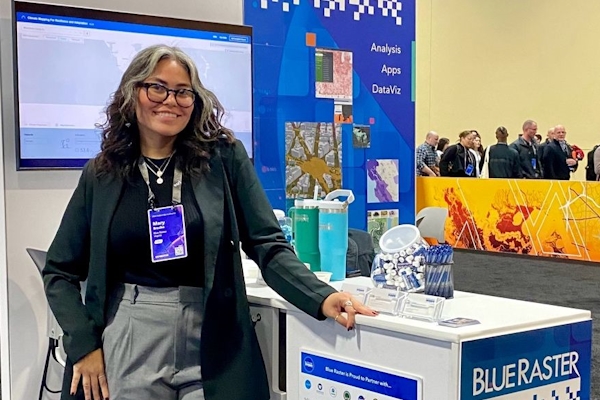
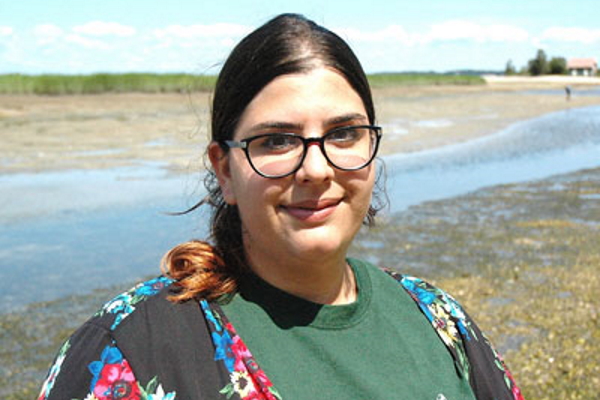
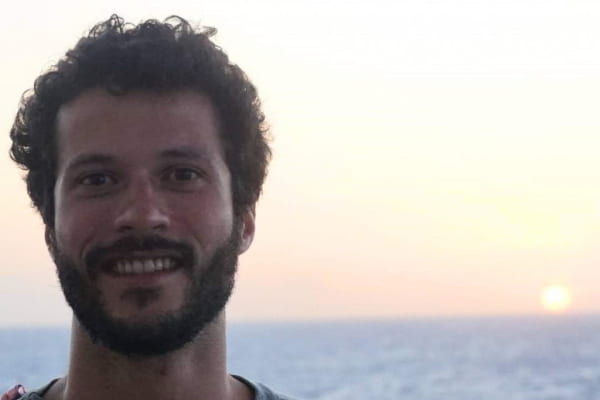
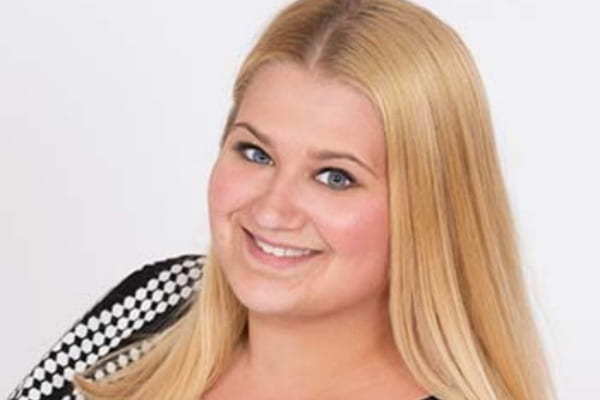
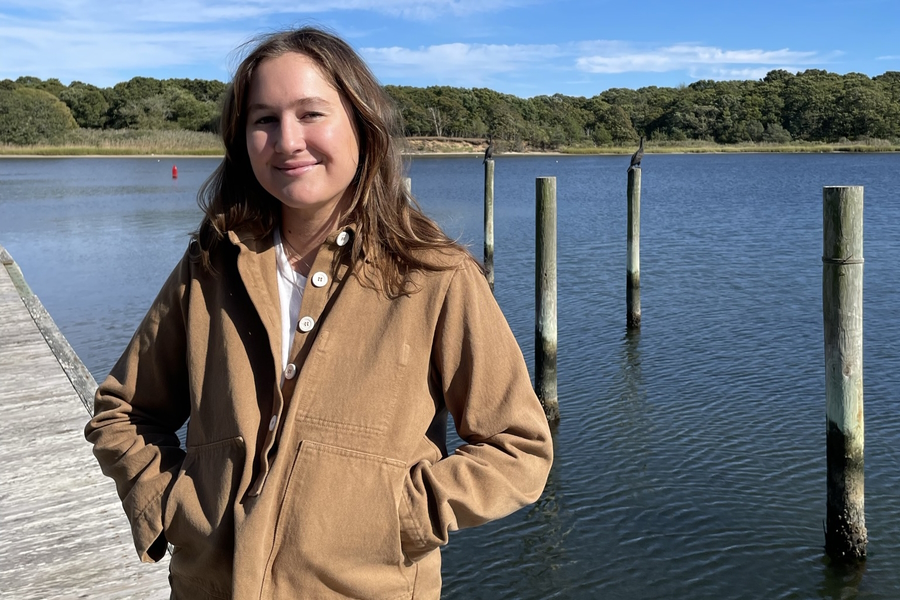
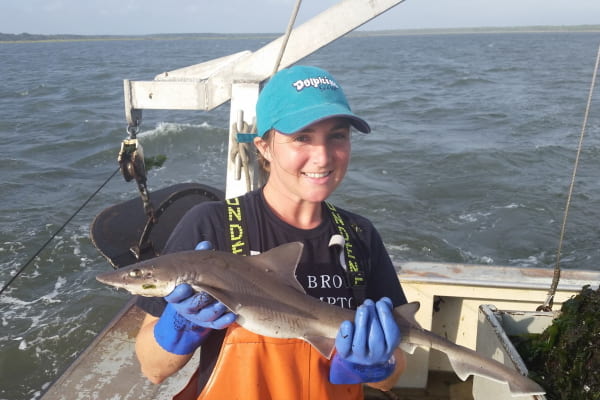
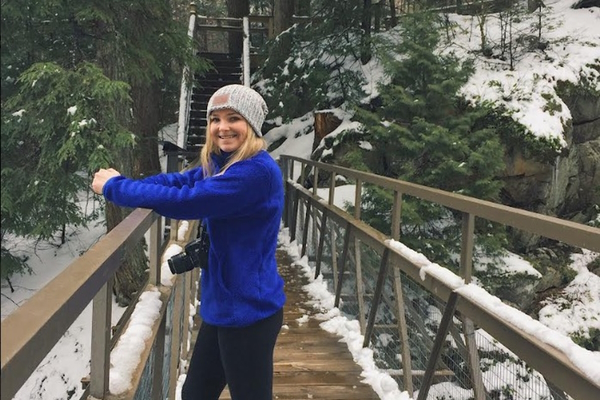
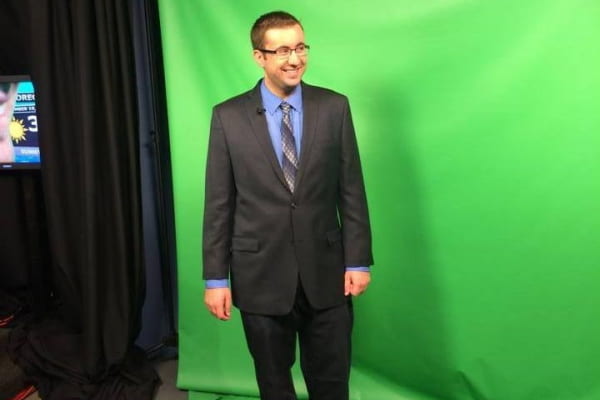
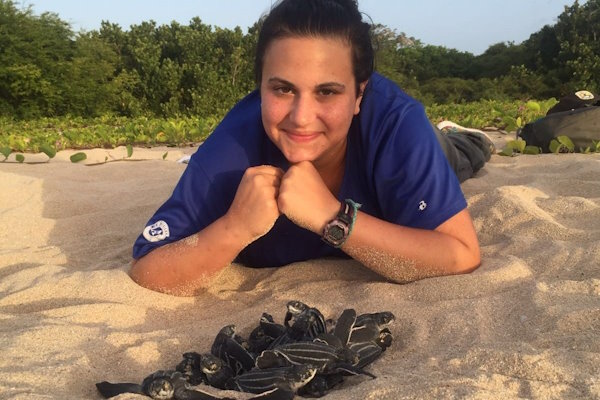
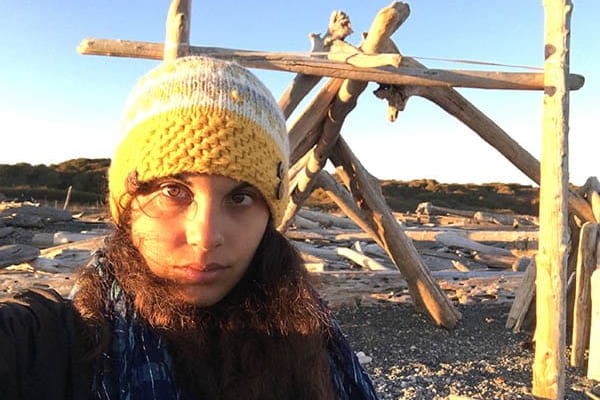
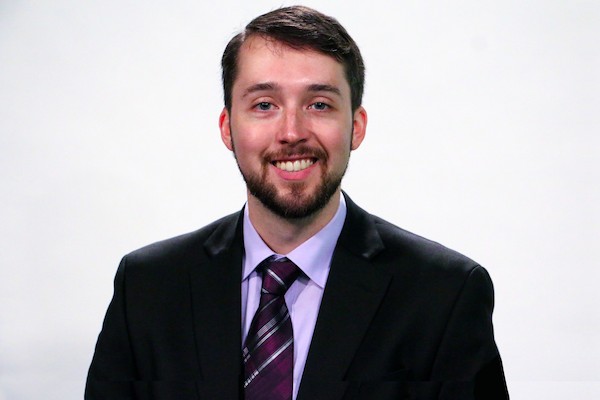
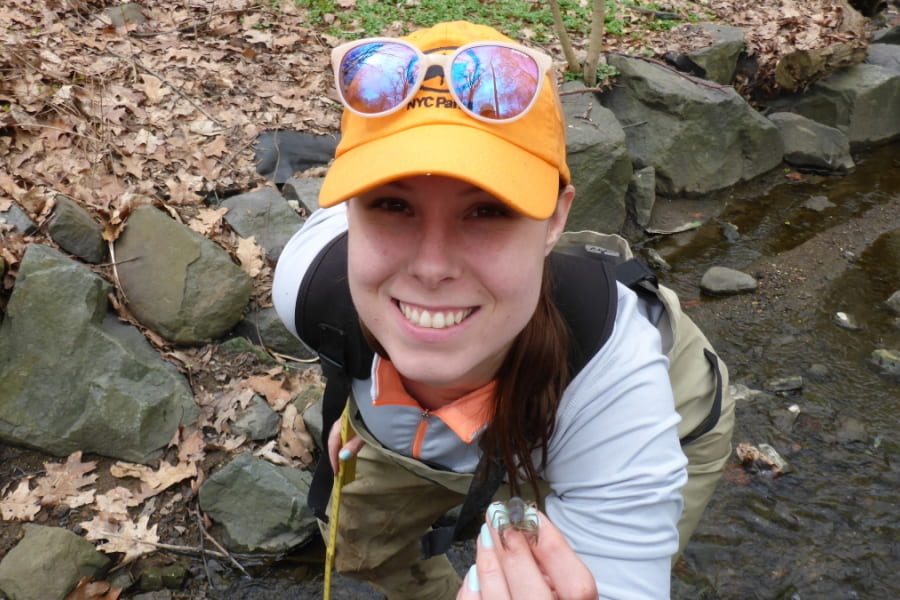
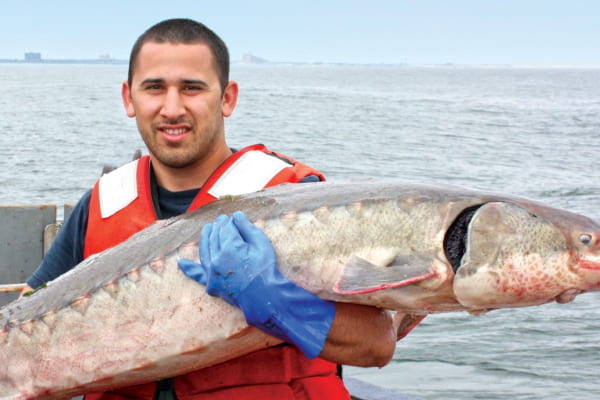
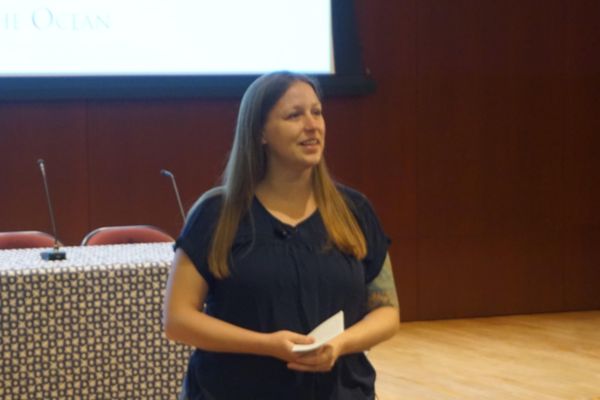
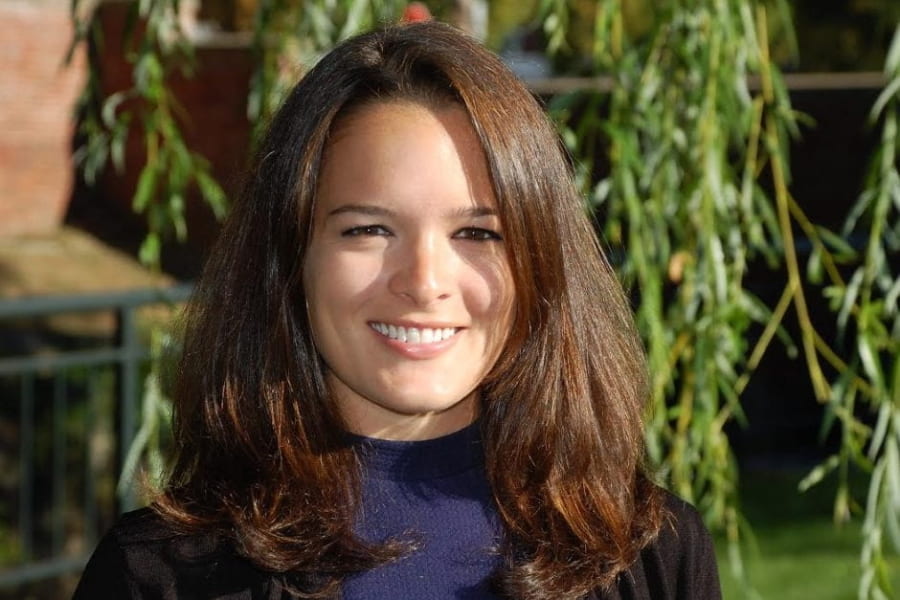
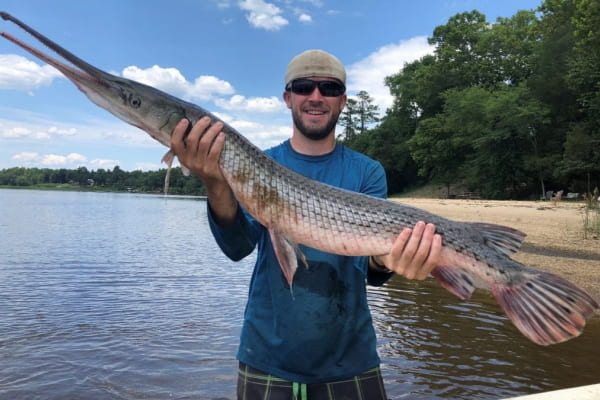
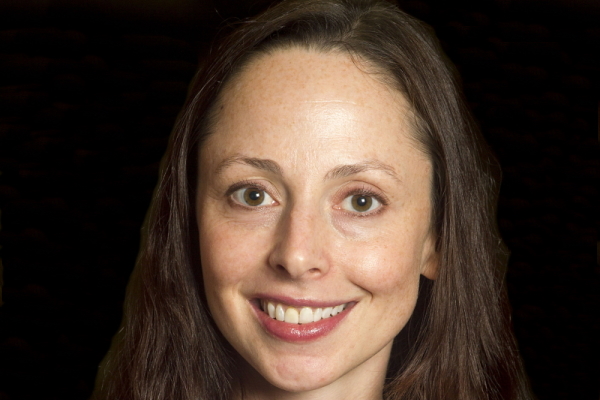
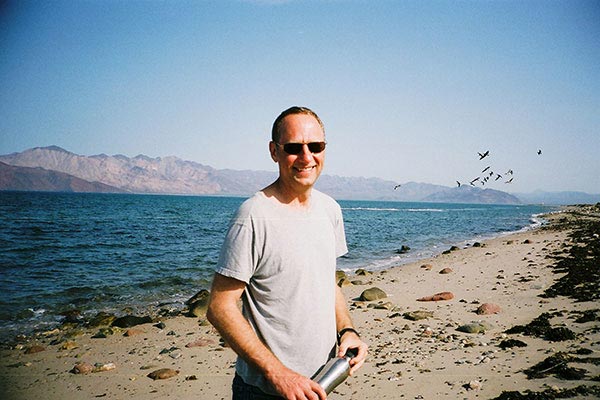
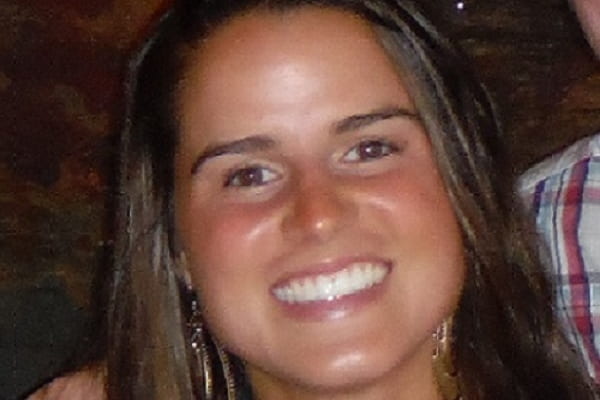
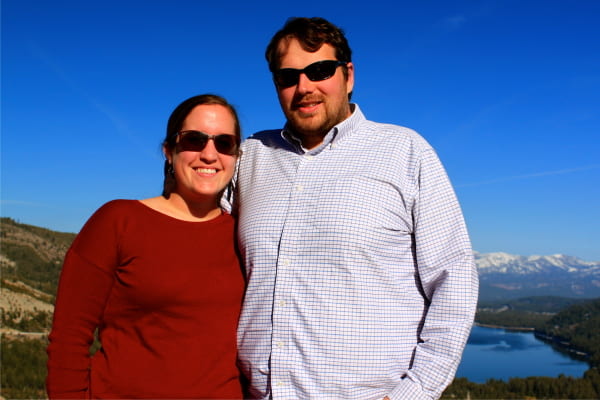
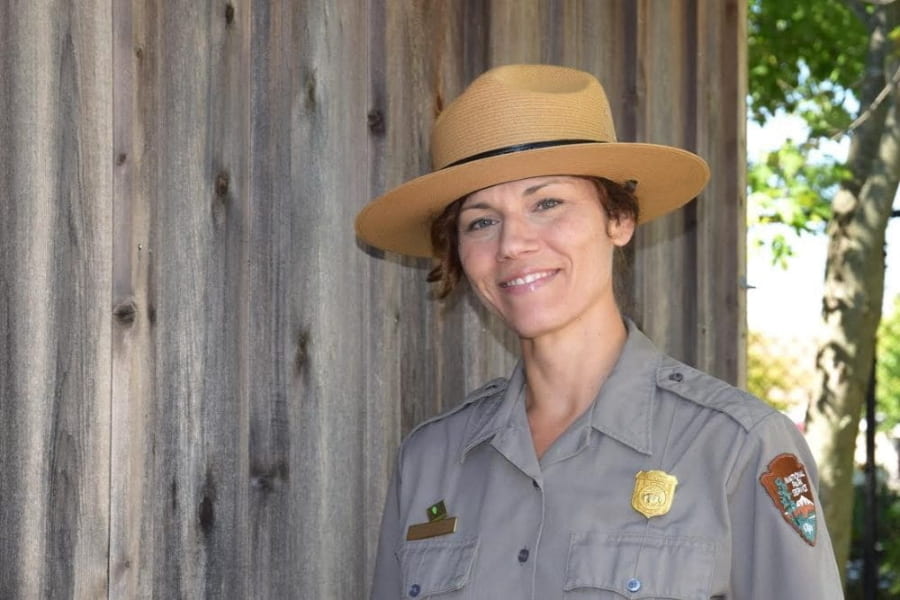
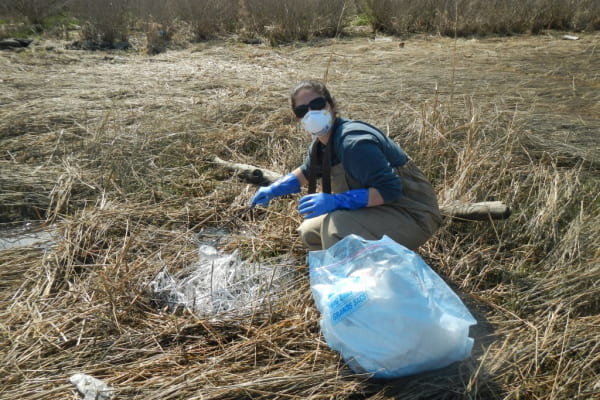
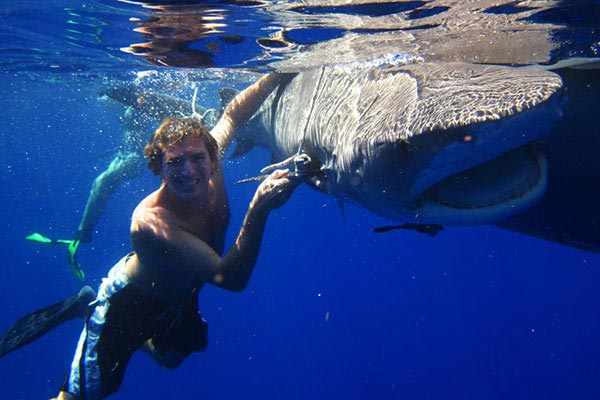
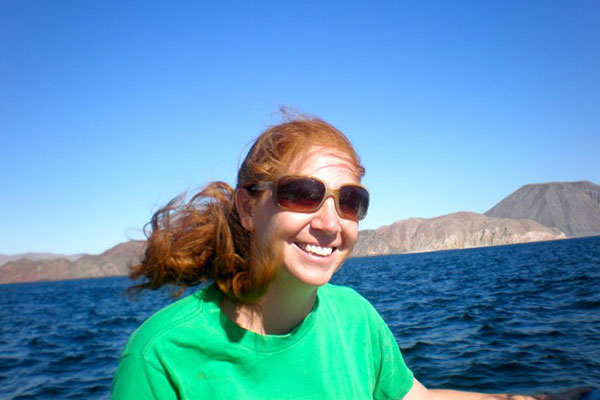
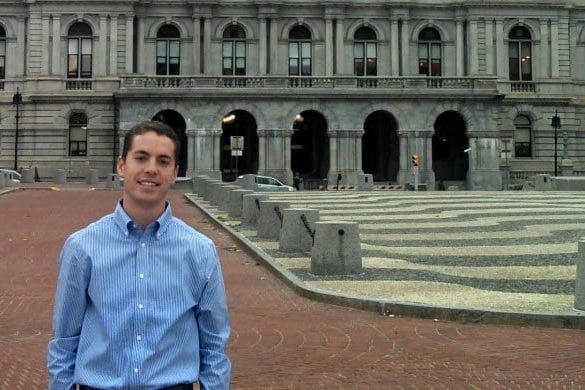
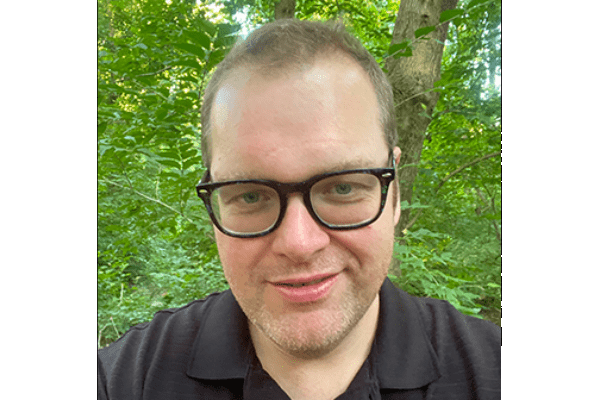
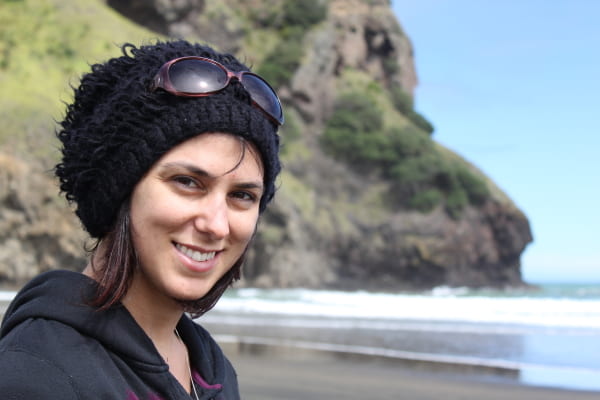
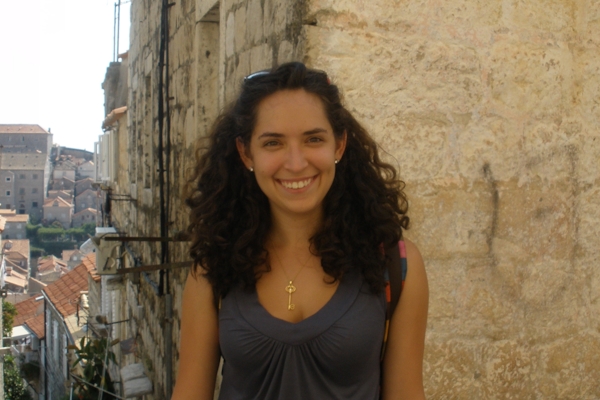
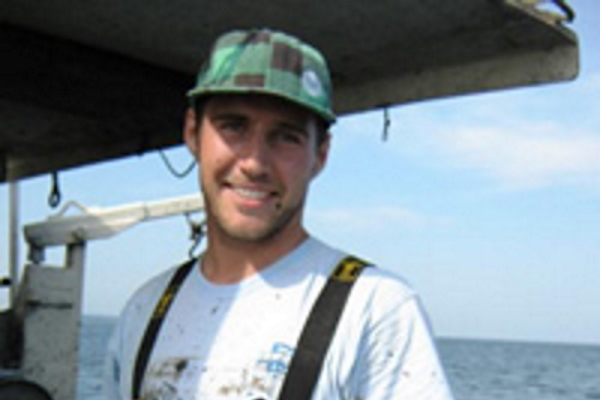
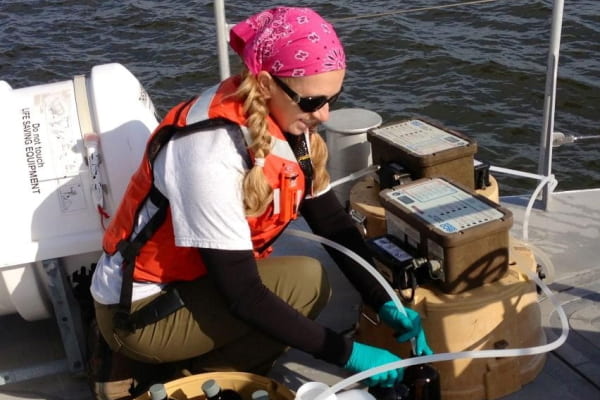
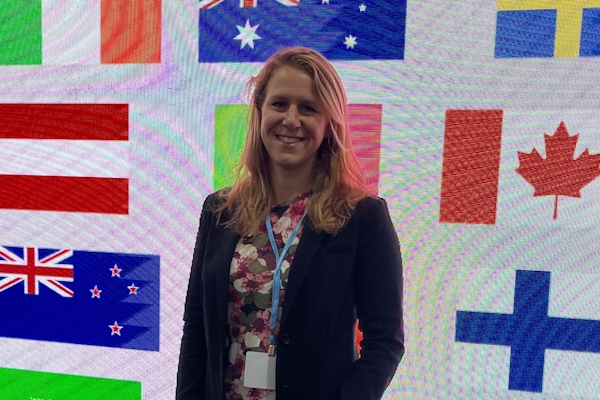
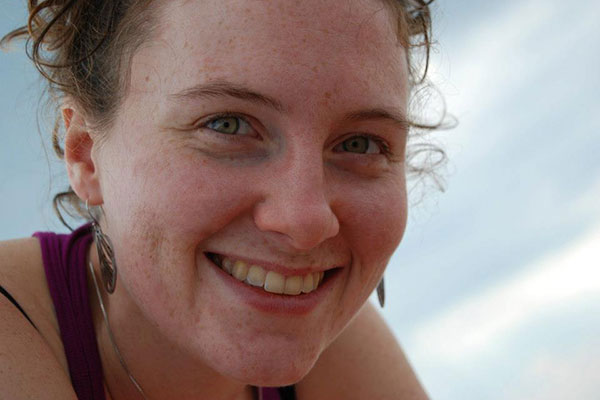

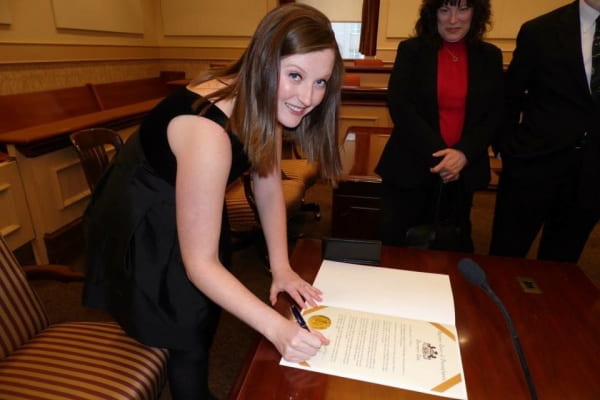
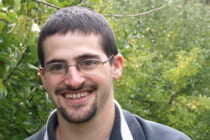
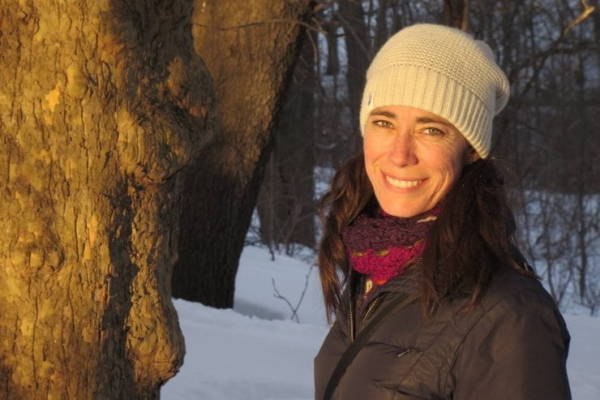

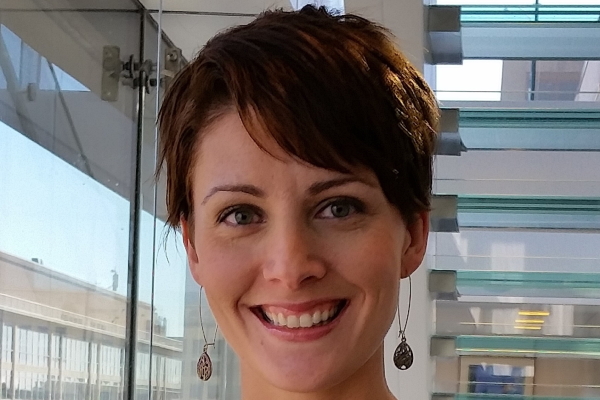
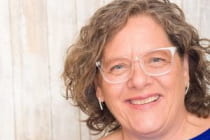
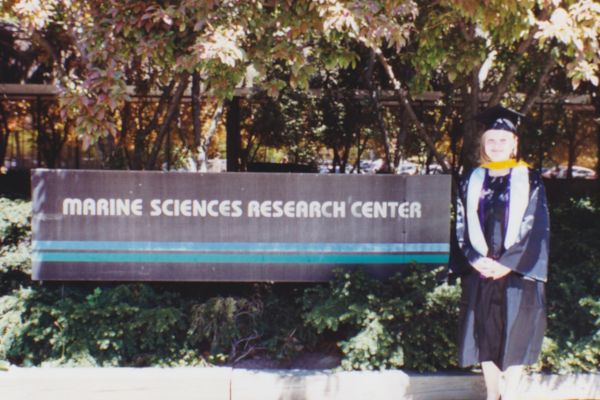

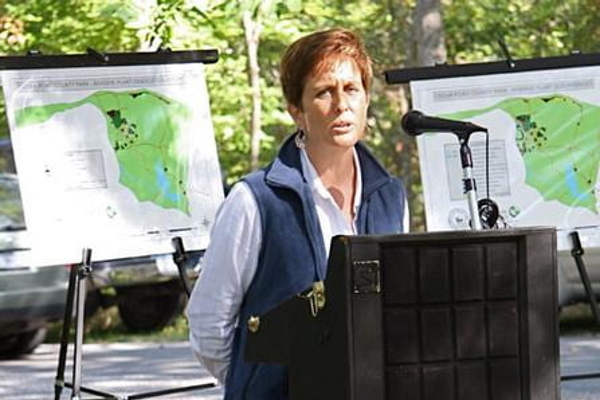
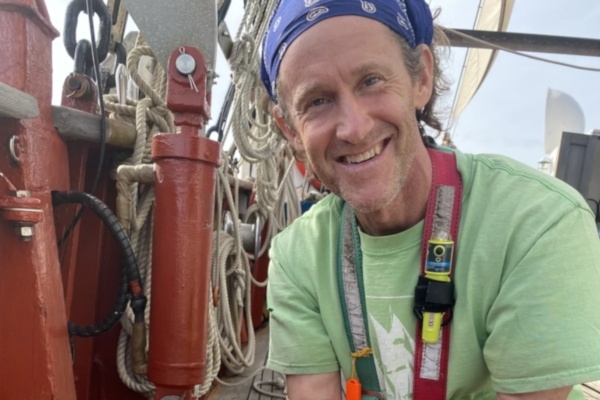
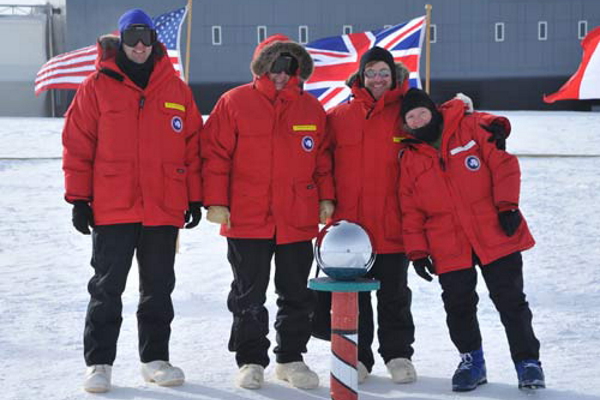
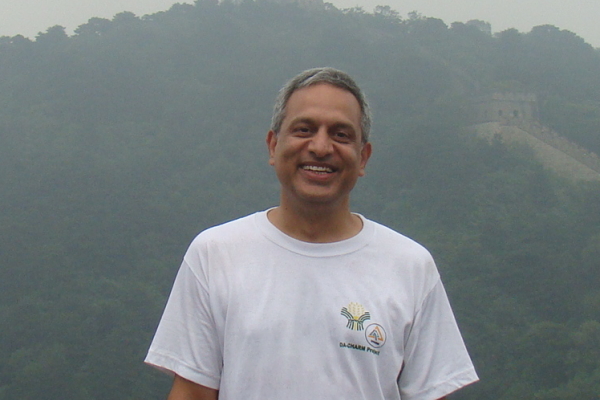
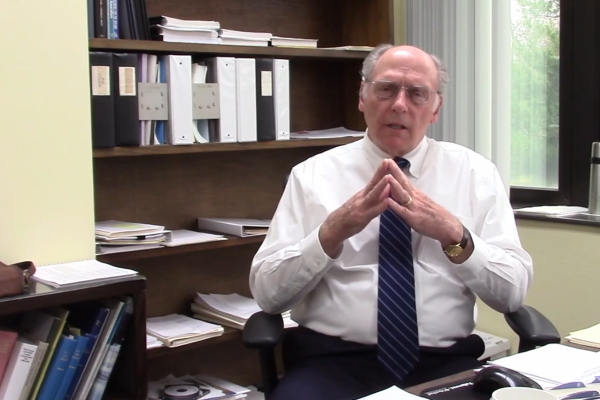
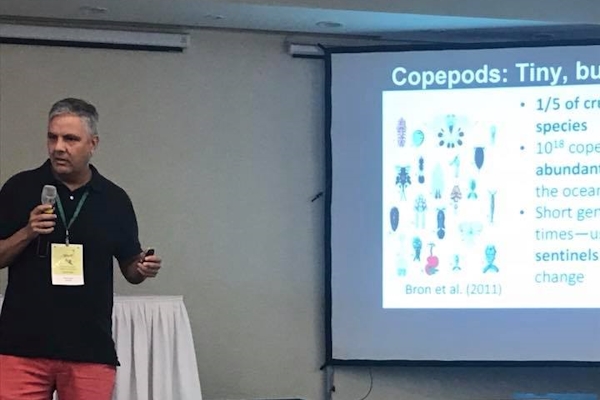
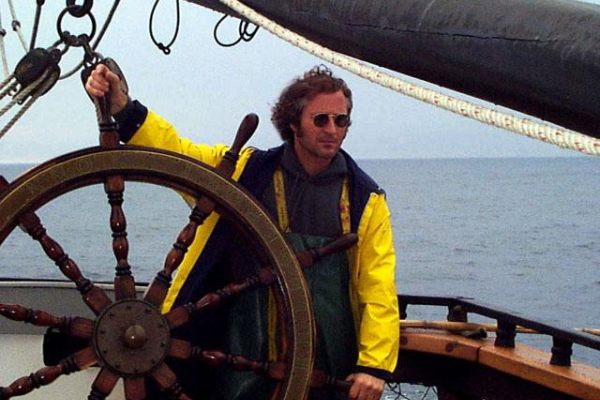
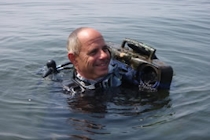
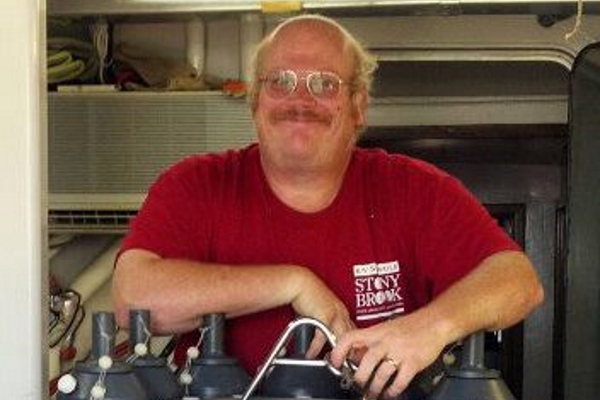
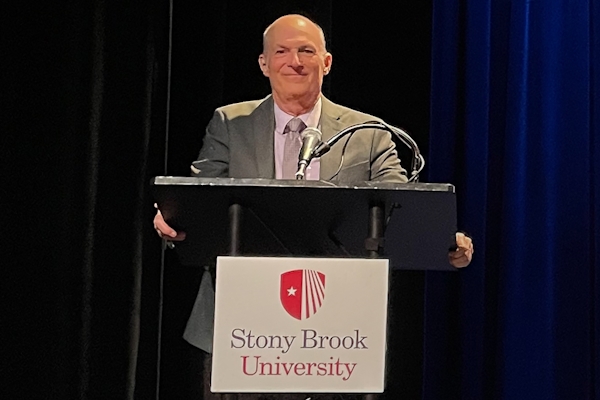
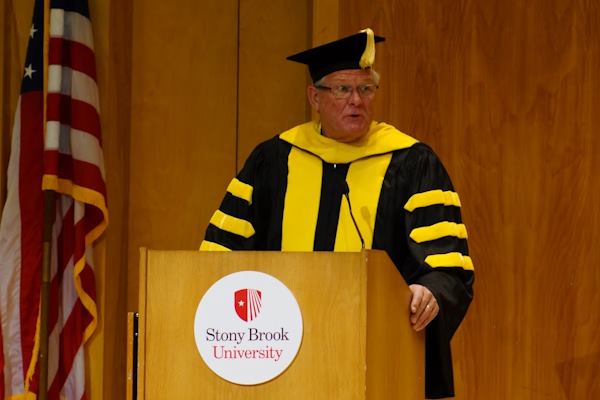
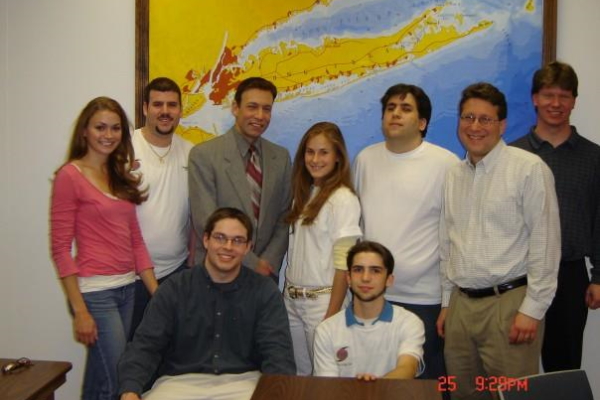



 authorized in April 1970 and produced its first graduate in May 1971. The MESP program
was a Masters of Science program designed for practicing professionals and recent
college graduates with varied academic backgrounds. Its curriculum offered a strongly
interdisciplinary examination of the diverse factors affecting the marine environment
and was designed to prepare students for careers in the then-rapidly expanding fields
of coastal management, environmental monitoring and protection and resource management.
During the 1975-76 academic year, MSRC conducted an internal review of the MESP program.
As a result of this review, the program name was changed to “Marine Environmental
Sciences Program” and the program’s focus was shifted more towards hard science, with
somewhat less emphasis being given to management and specific environmental problem-solving.
authorized in April 1970 and produced its first graduate in May 1971. The MESP program
was a Masters of Science program designed for practicing professionals and recent
college graduates with varied academic backgrounds. Its curriculum offered a strongly
interdisciplinary examination of the diverse factors affecting the marine environment
and was designed to prepare students for careers in the then-rapidly expanding fields
of coastal management, environmental monitoring and protection and resource management.
During the 1975-76 academic year, MSRC conducted an internal review of the MESP program.
As a result of this review, the program name was changed to “Marine Environmental
Sciences Program” and the program’s focus was shifted more towards hard science, with
somewhat less emphasis being given to management and specific environmental problem-solving.
 SoMAS is at the vanguard of a new public awareness of the importance and fragility
of the coastal zone. I cannot imagine a more exciting opportunity for prospective
students seeking to make a meaningful contribution to important issues, while at the
same time receiving a high quality education.”
SoMAS is at the vanguard of a new public awareness of the importance and fragility
of the coastal zone. I cannot imagine a more exciting opportunity for prospective
students seeking to make a meaningful contribution to important issues, while at the
same time receiving a high quality education.” I was very happy with my decision to come to SoMAS at Stony Brook for my Ph.D., and
I would highly recommend SoMAS to future students. One of the biggest assets of the
department is its open and friendly atmosphere. Not only is it relatively easy to
collaborate with other laboratories on site, but the majority of students socialize
together creating a warm, welcoming environment, which is so important considering
how much time one spends on campus and interacting with colleagues. Students who decide
to attend SoMAS are rewarded with a wonderful opportunity to develop their own research
interests with excellent faculty, and, when one has spare time, students can easily
drive or take the train into New York City or hang out at the many nearby beaches.”
I was very happy with my decision to come to SoMAS at Stony Brook for my Ph.D., and
I would highly recommend SoMAS to future students. One of the biggest assets of the
department is its open and friendly atmosphere. Not only is it relatively easy to
collaborate with other laboratories on site, but the majority of students socialize
together creating a warm, welcoming environment, which is so important considering
how much time one spends on campus and interacting with colleagues. Students who decide
to attend SoMAS are rewarded with a wonderful opportunity to develop their own research
interests with excellent faculty, and, when one has spare time, students can easily
drive or take the train into New York City or hang out at the many nearby beaches.” When I came to the MSRC to study the population biology of fishes, I was impressed
by the breadth of topics addressed by the faculty. However, I couldn’t predict how
valuable this diversity of interests would become to me. During the course of my research
on the winter ecology of striped bass, I have frequently called upon the expertise
of geologists, benthic ecologists, and physical oceanographers in planning experiments
and interpreting findings. In addition I have had the opportunity to participate in
a variety of estuarine research projects outside my own work. Through this cooperation,
I have gained a much better understanding of my study organism, and the estuarine
environment in which it lives. Working among such a diverse group of scientists has
been an incredibly challenging experience, and one which has been invaluable to my
professional development.”
When I came to the MSRC to study the population biology of fishes, I was impressed
by the breadth of topics addressed by the faculty. However, I couldn’t predict how
valuable this diversity of interests would become to me. During the course of my research
on the winter ecology of striped bass, I have frequently called upon the expertise
of geologists, benthic ecologists, and physical oceanographers in planning experiments
and interpreting findings. In addition I have had the opportunity to participate in
a variety of estuarine research projects outside my own work. Through this cooperation,
I have gained a much better understanding of my study organism, and the estuarine
environment in which it lives. Working among such a diverse group of scientists has
been an incredibly challenging experience, and one which has been invaluable to my
professional development.”